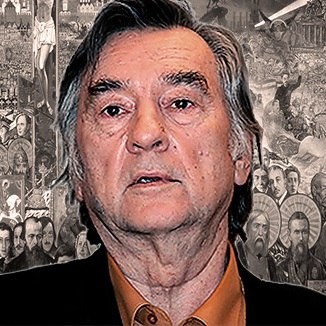Rallies for democracy in Russia gather only a small percentage of the population. People can lose interest in democracy. They can (sometimes indirectly) support totalitarian practices or live their own private lives. In this rather sad tone, Professor Artemy Magun began a discussion on “Democracy: between the national and the global,” which was held a few days ago at the European University in St. Petersburg.
The declining (at)traction of democratic values in Russia is well illustrated by perpetuating sympathies to Stalin that are widely covered in—and significantly shaped by—the Russian media. For me personally, the most revealing aspect was an hour-long interview given by Alexander Prokhanov to Vladimir Pozner aired by the TV-1 Channel. Of course, Pozner—with his feeble attempts to maintain the remnants of a liberal worldview within an increasingly illiberal regime—can be proud of his conversation with someone, who, a few years ago, had publicly promised to hang him by his necktie. However, his interlocutor had more reason for joy this time around because Pozner deliberately contributed to the ongoing legitimation of the Stalinist discourse of which Prokhanov is one of the leading voices.
Yet, even if democracy is in decline domestically, it still has a meaningful global dimension. On the one hand, as a hegemonic discourse, “democracy” legitimizes the regime status quo in the West. Many cultural and consumption practices (from public festivities to, as some participants deem, new social networks) sustain the global domination of the capitalist West rather than challenge it. Even if the Kremlin tries to prove its self-sufficiency, the main audience for the Russian discourse is still the West.
On the other hand, we see movements for “real” democracy, as exemplified by the global wave of protests. In fact, revolutions are routinized: if you don’t have a record of revolts, you won’t be recognized as a democracy. As this wave of protests (including the U.S. “Occupy” and the Russian “Fair election” movements) has shown, grassroots democratic movements may find its limitation at the nation state level. Yet this will hardly give a new energy to proponents of “cosmopolitan democracy.”
The most capital of practical questions is whether a Western pro-democracy agenda can constitute the basis for foreign policies? A democracy-based policy does not seem to work in EU–Russian relations. In Germany, the key member state within the EU, the political class is split between supporters of “normalization” (i.e., streamlining Germany’s sovereign foreign policy along the lines of national interests) and adherents of a pan-European normative order with democratic values at its core.
My feeling is that the first group currently prevails in the debate. In practical terms, this makes the Germans more critical to the value-ridden Ostpolitik. At least they have started asking hard questions: Why is Belarus is sanctioned while Kazakhstan, a member state of the OSCE, not? And even more radical, such as: Is the Pussy Riot trial much worse than Guantanamo (for a German debate on these comparisons see: http://www.dradio.de/dlf/sendungen/dossier/1992509/).
On the global level, questions about democracy also abound. As Timofei Bordachev (Higher School of Economics) ironically mentioned in his public lecture at Yekaterinburg University a couple of days ago, we are moving toward a global political democracy where no one controls anyone—neither the United States controls Georgia, nor Russia controls Belarus. But isn’t this picture of “world democracy” a formula of global ungovernability?
Perhaps, both locally and globally, we have democracy only if we complain about the lack of it.
Andrey Makarychev is a Guest Professor at the Free University of Berlin, blogging for PONARS Eurasia on the Russia-EU neighborhood.











